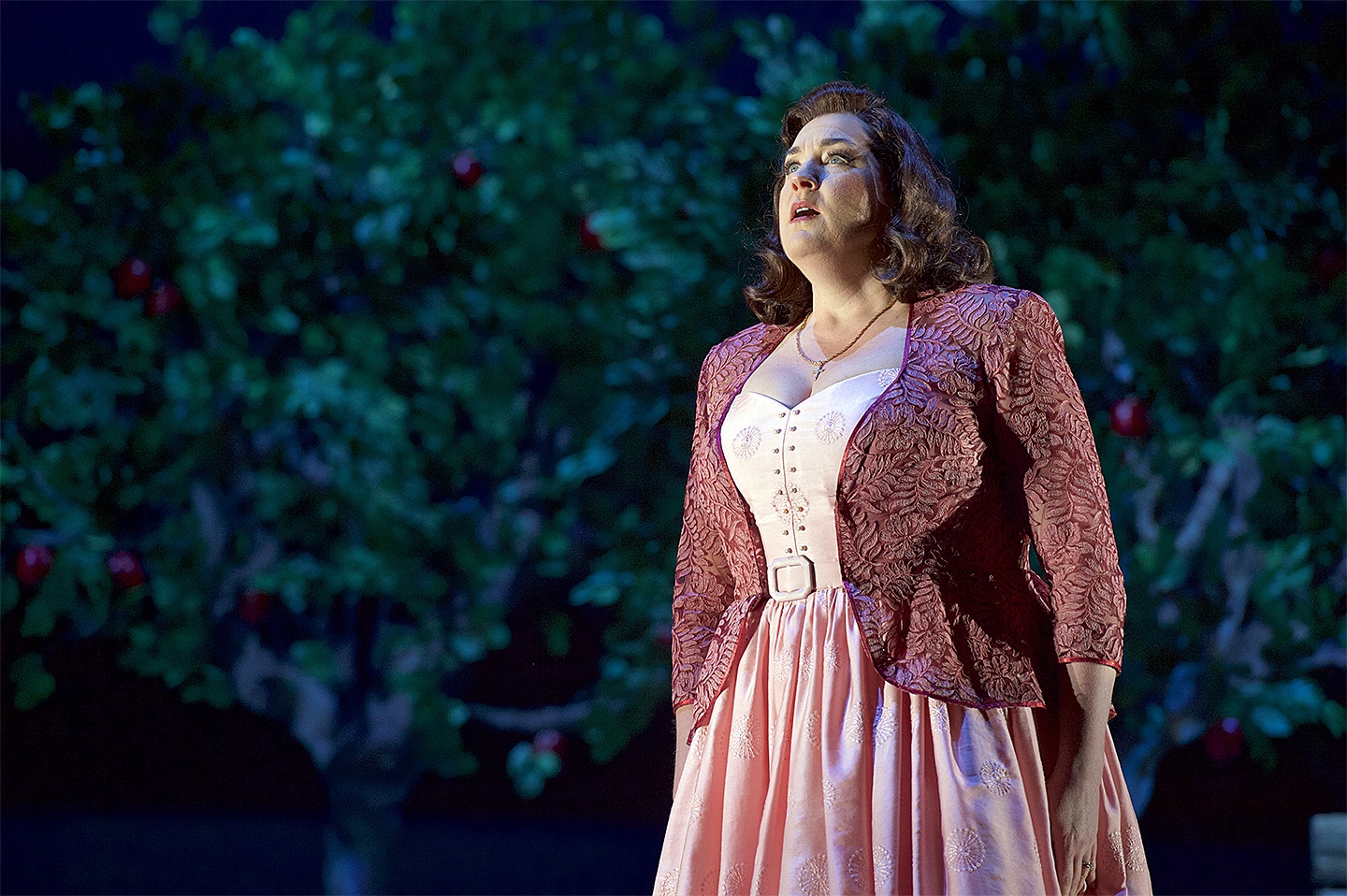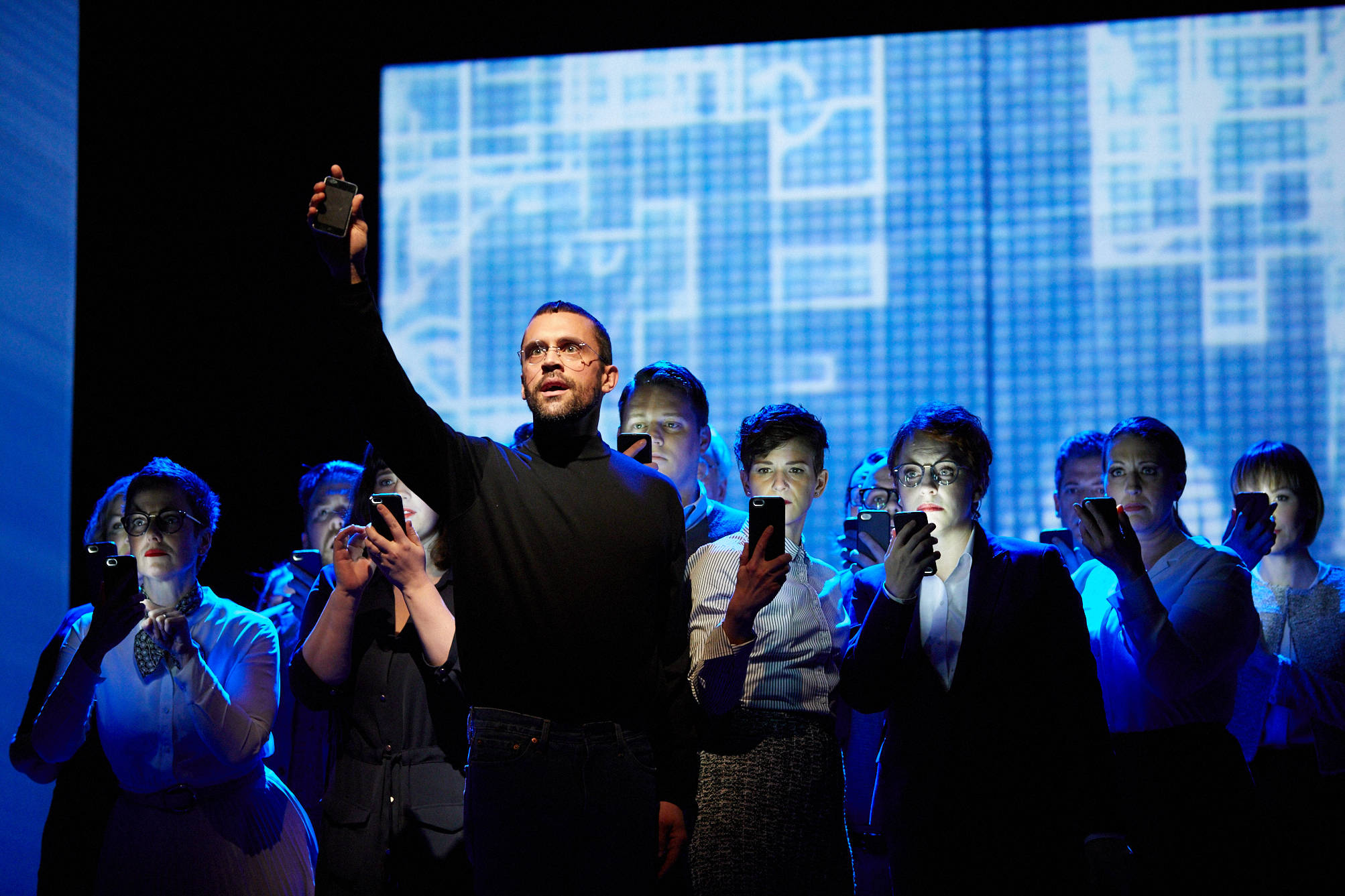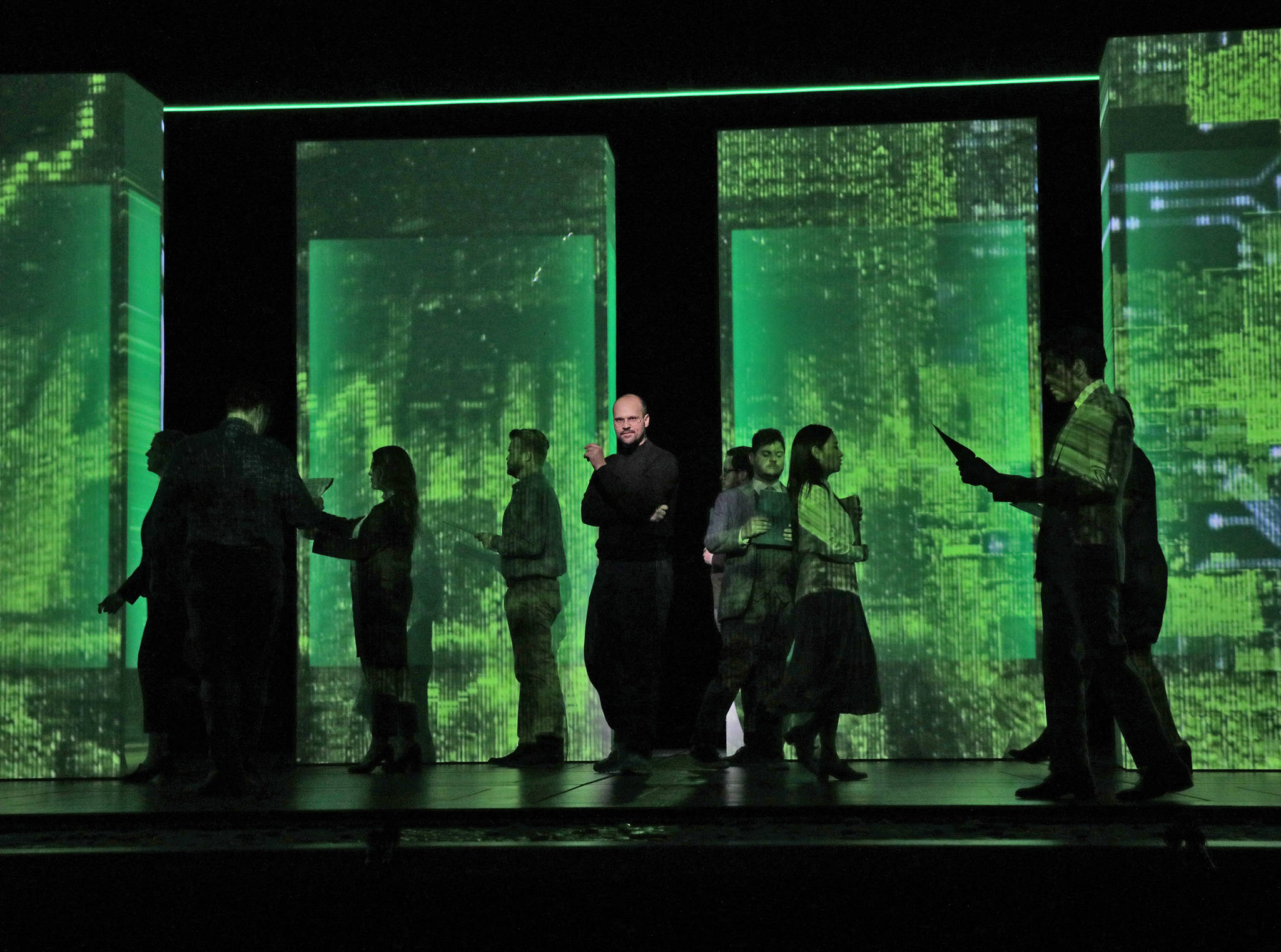Anyone dismayed by Seattle Opera’s bare-bones La traviata in January might think “Oh, not again” upon seeing the opening scene of the company’s Katya Kabanova, which opened Saturday—a completely empty black box. But be patient; it fills soon enough, not only with a set (including several pretty and effective projected backdrops) but with pathos and a great deal of ear-grabbing music.
Those backdrops deliberately resemble the Northwest, scenes easily seen if you drive an hour out of town in any direction: mountains, trees, streams, rushing waterfalls. Seattle Opera’s not only localized Czech composer Leoš Janáček’s 1921 opera, moving it out of 19th-century Russia, but pushed it forward to the conformist ’50s. The plot translates well: a troubled woman, the title role; her would-be lover, also yearning for escape; her hapless husband; and his mother, a harridan who poisons every relationship she touches. Also appropriately American, in a surprising way, is Janáček’s dramatic approach (he wrote his own libretto); it’s just the kind of concentrated, no-frills storytelling—a relentless trudge to tragedy—later taken up by successful American opera composers like Gian Carlo Menotti, Douglas Moore, and Carlisle Floyd.
The key to Janáček’s musical method is found in the song Kudrjas (Joshua Kohl) sings in Act 2, a folklike melody shaped in little arcs that keep circling back on themselves. Janácek fills his score, and builds sumptuous and colorful textures, out of similar micro-repetitions: scurrying scribbles of notes, nervous oscillations, with almost always a trill sounding somewhere in the orchestra, creating a constant undercurrent of tension. Rapturous melodies arise now and then, but none outlast a dozen notes; of course, for these characters, neither does happiness. Out of these devices Janácek makes music as wondrously lovely as anything his contemporaries Strauss or Puccini ever wrote—especially in Katya’s Act 1 reminiscence aria and her Act 3 farewell/love duet with Boris.
With the platinum gleam of her soprano, Melody Moore, Katya in opening night’s cast, makes these moments captivating. She’s ably partnered by Joseph Dennis as Boris, whose tenor carries beautifully even from offstage, which is where Janáček discreetly places his adulterers during the climax of their Act 2 rendezvous. Kohl and Maya Lahyani, as his girlfriend Varvara, provide as much mood-lightening charm as Janáček allows, but even they’re oppressed by the walking storm cloud that is Kabanicha, the mother-in-law; Victoria Livengood turns her into one of Seattle Opera’s more memorable villains, all the more chilling because you probably know someone like her. McCaw Hall, Seattle Center, 389-7676, seattleopera.org. $25 and up. Ends March 11.









